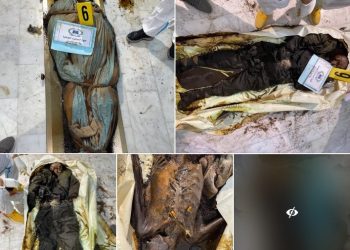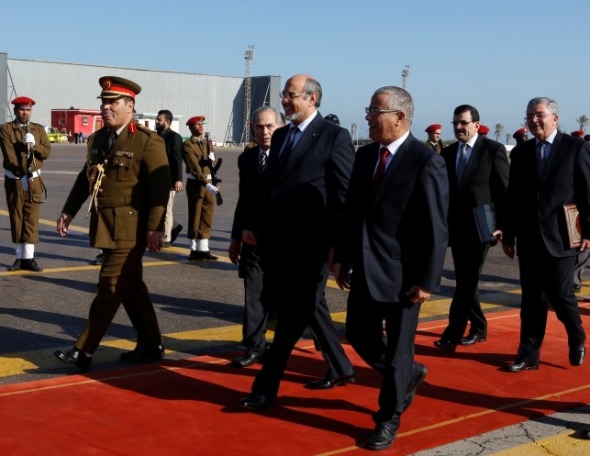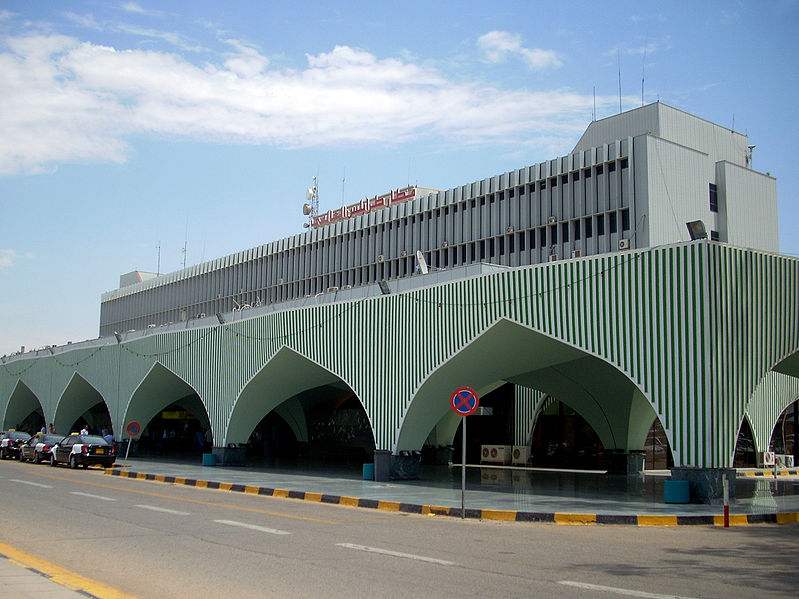By Houda Mzioudet.
Tunis, 7 January 2013:
Hamadi Mayara, the Governor of Medenine, told Tunisia’s Radio Tataouine yesterday, Sunday, that Jebali’s visit to Libya could lead to the reopening of the border crossing of Ras Jedir today or tomorrow at the latest for Tunisian merchants to trade in Libya.
The visit comes amid tensions in the Tunisian border town of Ben Guerdane between locals and security forces. On the night between Saturday and Sunday, protests broke out in the town with demonstrators demanding the reopening of the border crossing. Eyewitnesses spoke of sporadic skirmishes between security forces and protesters, according to different Tunisian media sources.
A number of merchants set fire to tyres, closed the road leading to the Ras Jedir border crossing and threw stones at the police station in the town centre near the main square. They were protesting at the non-activation of the initial agreement between the Tunisian and Libyan authorities to reopen of the border crossing of Ras Jedir to goods vehicles.
Security forces used tear gas to disperse the protesters, chasing them into the backstreets. Mohamed Zorraga, a Ben Guerdane member of the Tunisian trade union organisation UGTT and a deputy general secretary of Primary Education Union, told the Libya Herald that during the clashes one young protester was injured.
Ben Guerdane’s streets were again calm on Sunday morning but tension remained in the air in the town’s main thoroughfare.
According to Zorraga, some schoolchildren and students walked out of their schools today, Monday, in protest at what happened.
He complained that the marginalisation of Ben Guerdane had resulted in the state of tension and resentment by the town’s locals, and in particular merchants, for whom cross-border trade with Libya constitutes the only livelihood for them.
He expressed astonishment at the Libyan authorities’ refusal to allow Tunisian truck drivers to cross the border despite the fact the Tunisians are allowing Libyan merchants to do so. He confirmed the governor’s of Medenine’s statement that the crossing would remain closed to the Tunisian truck drivers, which provoked the ire of Tunisian merchants.
Zorraga defended the protesters’ right to express their demands for development and an end of the town’s marginlisation which he claimed had been going on for decades.
“Our demands are legitmate and we demand both sides to end this state of tension,” he said.
“Yesterday, the governor of Medenine stated that the ball is now in the Libyan court. I want to remind everyone that this protest is a peacfeul one and that our demands are legitimate. If no slution is found, protests will continue,” he insisted.
Saturday’s and Sunday’s events came as a reminder of the August 2010 clashes between security forces and locals in Ben Guerdane, during which violence was used against protesters demanding a fair share in the devlopment of the town. The protests came after the Tunisian and Libyan authorities at the time had jointly decided to impose restrictions on border trade and Tunisian merchants from Ben Guerdane in order, supposedly, to stop smuggling.
The repression was violent, with demonstrators injured and security forces breaking into locals houses searching for the protesters who had clashed with them. Some analysts decsribed the events of Ben Guerdane as a “one of the precursors to the first spark of the Tunisian revolution in Sidi Bouzid” — the town where street merchant Mohamed Bouaziz set fire to himself in December 2010 and triggered the Tunisian revolution. [/restrict]










